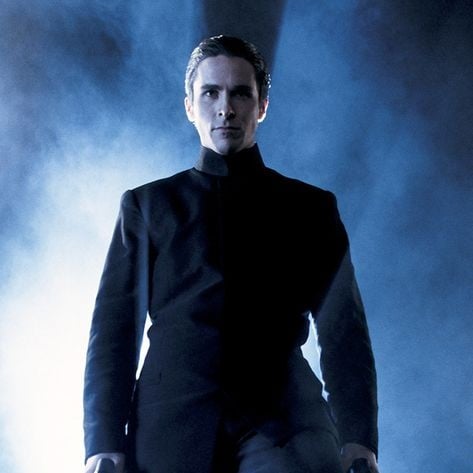Im not fully grasping how the mind of those “copycats” works. People who are obsessed with Columbine for example, and want to do a mass shooting. That is their thought process? Is there some study I can read exploring what’s on their minds?
Most are in desperate situations and are truly hurting. So they see someone do that and they tend to think “that would teach the people I view as hurting me a lesson”. They then commit the act and realize it was absolutely not what they wanted and a stark realization of what they did and what their life will become dawns on them. And so they commit suicide.
This is not a blanket statement, but in general this appears to be what’s going on
I agree with most of what you said, but I think the decision to end their lives is often premeditated, not a sudden decision where they realize they fucked up. It’s why some will leave notes or manifestos behind.
Some for sure. That’s why this isn’t a generalization, but after hearing some psychiatric interviews with ones who were caught they often said it wasn’t what they wanted and they knew their life was over and they were really scared
So they see someone do that and they tend to think “that would teach the people I view as hurting me a lesson”.
I’d bet that works because it seems to be is a culture of solving problems with people you don’t like by shooting said people.
Damn, that could perfectly be a short description of the US foreign policy.
Only the foreign policy?..
Well, I’m not from the US, I can only attest what I see and suffer myself.
Alienation and depression. Suicidal ideation can create a general devaluation in other lives as well. That sort of mindset can create a justification in wasting your own life with a splash. The mental calculus is already fundamentally incomprehensible to most folks because of that.
Copycats are motivated by the same thing as the originals, I guess, and just see someone who did it “successfully”. (My source is I made it the fuck up)
I’ve heard it convincingly argued mass shooters are people that a few decades ago would have become serial killers. This is just a new, easier way to kill a bunch of people and feel powerful.
It really depends. A lot of them are hurt in some way shape or form and in a desperate situation like qooqie mentions and get pushed back into a corner over and over until they violently lash out, and a lot of others have a genuine disdain for other people or a warped personality/prespective on something (like Elliot Rogers and his entitlement to a girlfriend/sex) and rather than try and quell it or get help, they let it fester until they eventuallty also lash out.
The end result is the same. Either they get inspired to do heinous actions because there’s no other option in their head to stop whatever they precieve as a problem, or they look at someone else that did them before and think “they had the right idea” and emulate them.
Damaged. Fearful. Aggrieved. Lonely. Hateful. Broken.
A touch of narcissistic psychopathy, lack of empathy.
After looking for info on Wikipedia I only found one brief mention of school shooter fandoms in the “Columbine effect” page:
Since the advent of online social media, a fandom for shooters Harris and Klebold has had a documented presence on social media sites, especially Tumblr.[86] Fans of Harris and Klebold refer to themselves as “Columbiners.”[87] An article published in 2015 in the Journal of Transformative Works, a scholarly journal which focuses on the sociology of fandoms, noted that Columbiners were not fundamentally functionally different from more mainstream fandoms. Columbiners create fan art and fan fiction, and have a scholarly interest in the shooting.[73]
The articles they link to are:
-
How Tumblr’s True Crime Fandom Reacted to the Escape of a School Shooter
-
The Killer Crush: The Horror Of Teen Girls, From Columbiners To Beliebers
I also found another interesting study on this titled “Glamorizing rampage online: School shooting fan communities on YouTube”.
They examined the network structure and social and psychological aspects of YouTube communities centered around school shootings, finding that they form a small-world network characterized by high clustering and low density, i.e. loosely-tied subgroups of fans. They argue that this network structure promotes the dissemination of hate ideology and justifications for mass violence, and also has the potential for anti-social behavior, which is consistent with previous analyses proposed by scholars. They also note that the people in these fandoms often talk about depression and other mental health problems, and argue that providing consultation to these people could help them leave these communities and reduce the spread of hateful rhetoric - however they also argue that the current reporting system may be insufficient to deal with these groups.
Article 1 also gives some anecdotal evidence of how some of these people justify their fandom by minimizing its ties to violence:
Shotsofdylan, the same blog that posted the bit of Dylan/T.J. fanfiction above, wrote:
“People who actually think we support murderers and condone their actions are fucking idiots. If you bothered to talk to most of us, we don’t condone anything bad they ever did. And most of us are intelligent, forgiving, compassionate people who learned a lot about humanity and life through the murderers we’re interested in. Don’t talk shit about us before you get to know us. Thanks.”
-
General disinterest in seeing other people as human.
People see shooters and murderers and how they get infamous and gain notoriety. Since that’s the most available outcome from an outside perspective, they assume it’s the motive.
This is why some people think that refusing to name shooters is somehow denial or punishment; a way to fight back.
The motive doesn’t matter. I mean is there a good reason?
People require validation of a sort, and when they don’t get it, they can take many different paths. Some choose to take the vengeance route to reciprocate their feelings on others. Some just get depressed, and of course there are many other things individuals can do as a response to a lack of validation. Then there’s the facet of mental health problems which could, or could not be mitigated.
I can’t speak for the suspects, but it’s probably many different forms of psychology we’re looking at, some of which I know (as long as they’re going down) want to take society down with it (what many call a lose-lose-situation, probably the worst interpretation of the parable of the tigers and the strawberry) and some of which see their actions as forcing society forward (known as accelerationism).
They’re just being edgy, most don’t do a damn thing. It’s for attention.
In my experience, the most dangerous are the quiet kids who just draw ridiculously detailed guns on their books all day.
I was always nice to those kids.
deleted by creator
almost all mass shooters are bullies, so the question can be why they are
assholeslike that?I don’t know that I agree with this take…plenty of them are bullied, feel like outcasts, suffer from mental illness, and I think often have some latent sociopathy (lack of remorse) and this all combines to them feeling like they want “revenge” on society. I’m thinking about the columbine shooters from when I was a kid but many fit that profile.
So others feeling this way might feel gratified that these other shooters got revenge, the people picking on them got what they deserved…etc.
I think it’s also a different reaction to feeling suicidal. Instead of wanting to hurt yourself…you want to hurt “the world” but for the same reasons
Well, in a nation where bullying is glorified as a necessary rite of passage, why should it be surprising that so many bullied people end bullying others?
deleted by creator







